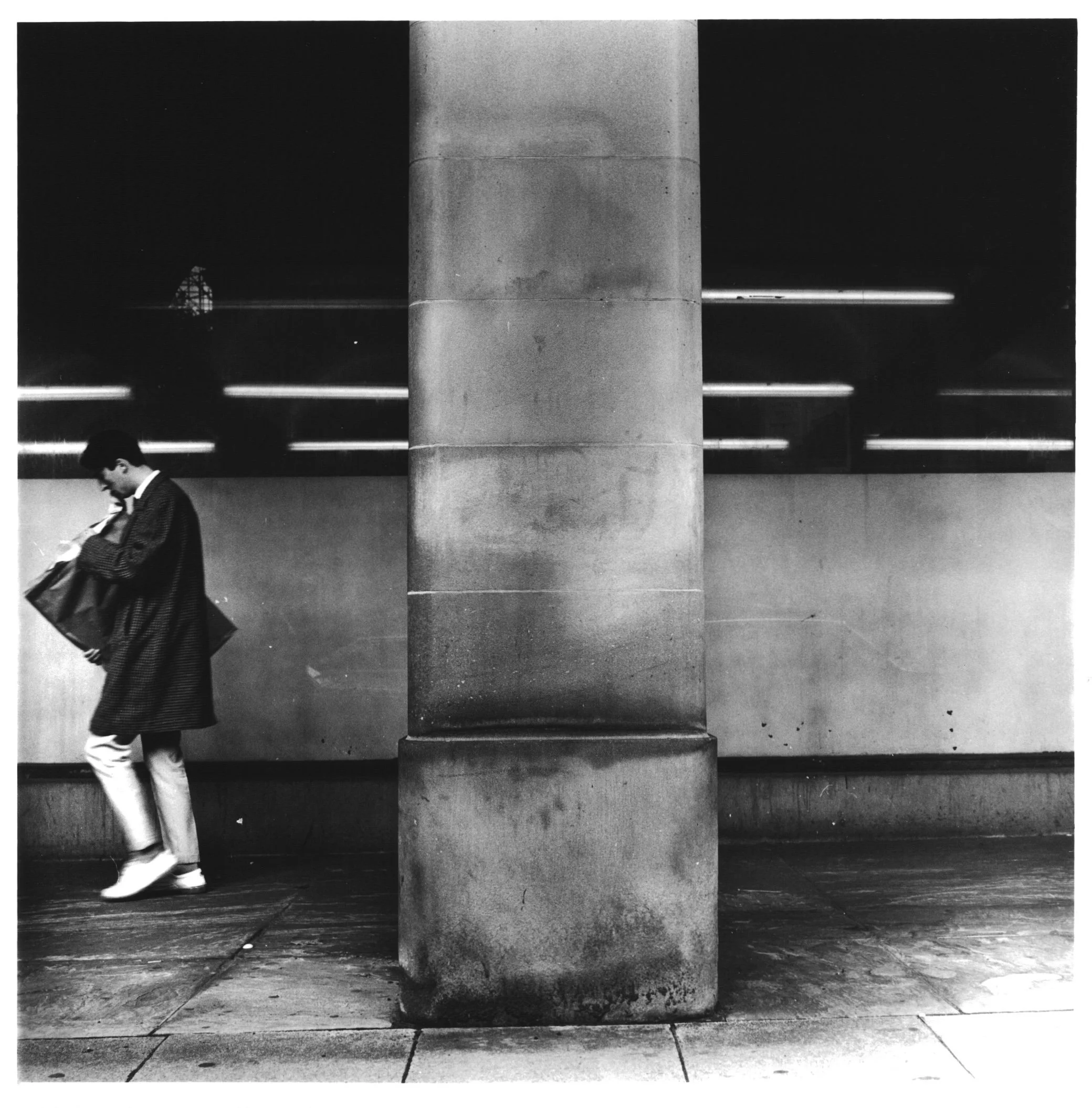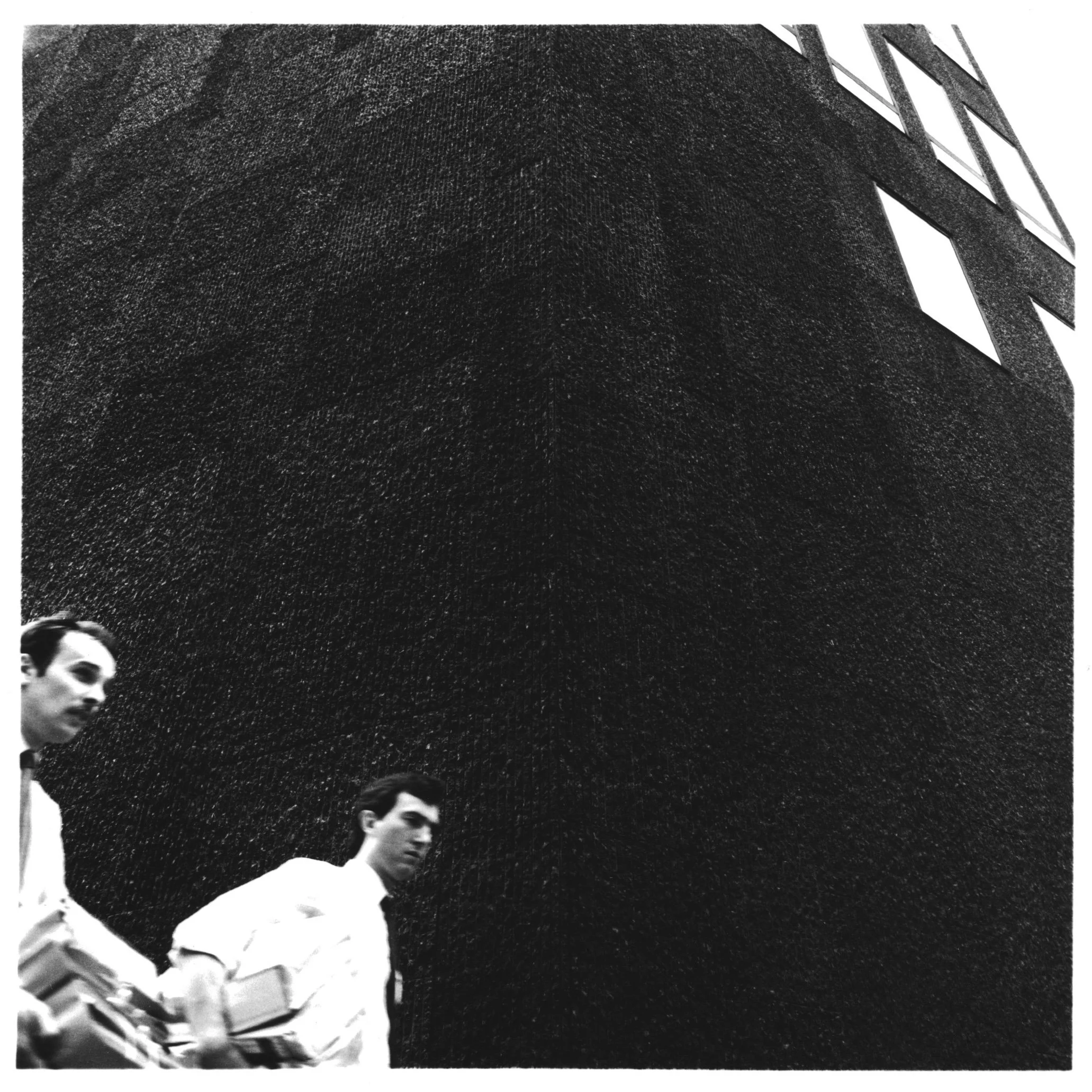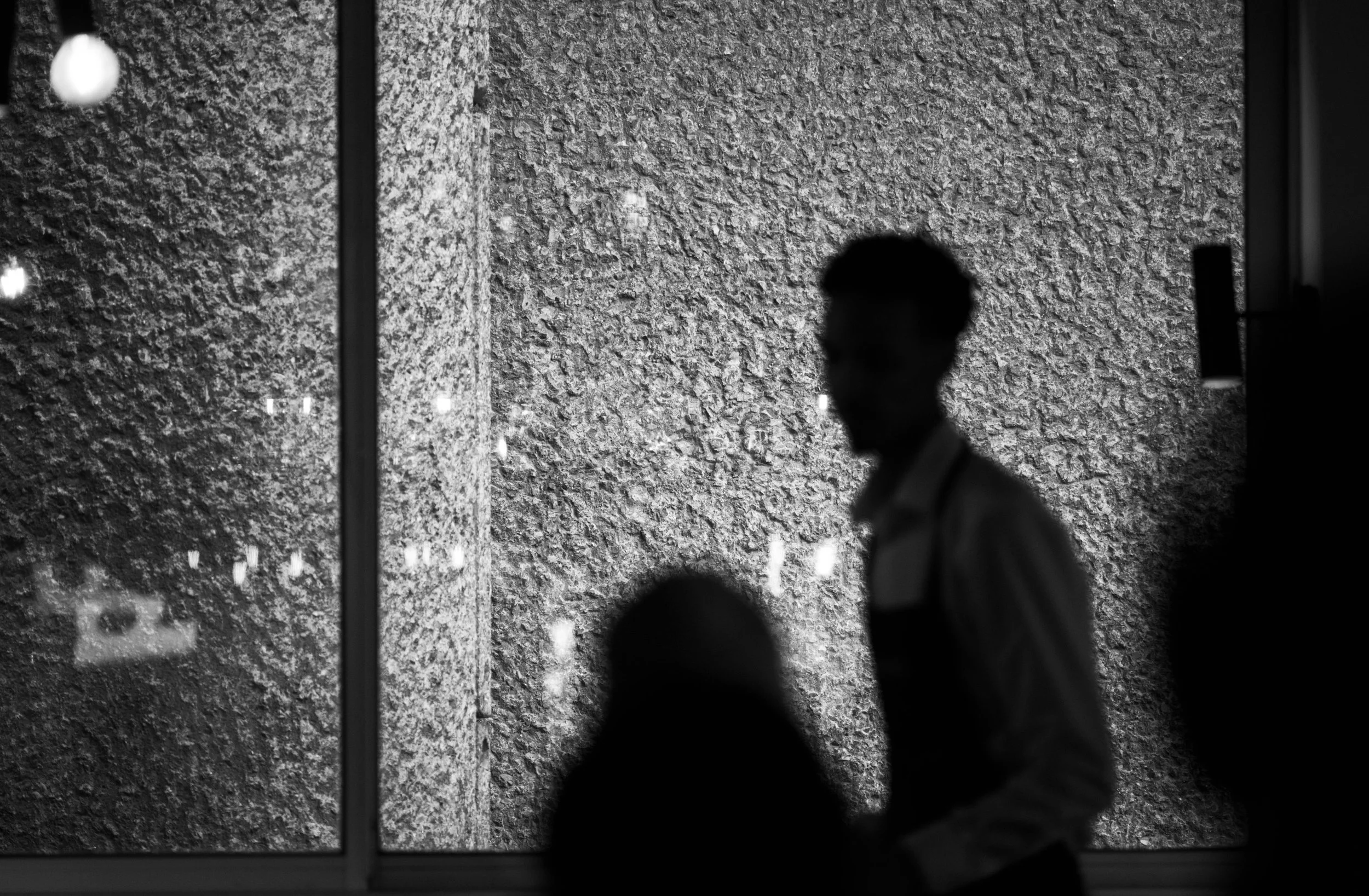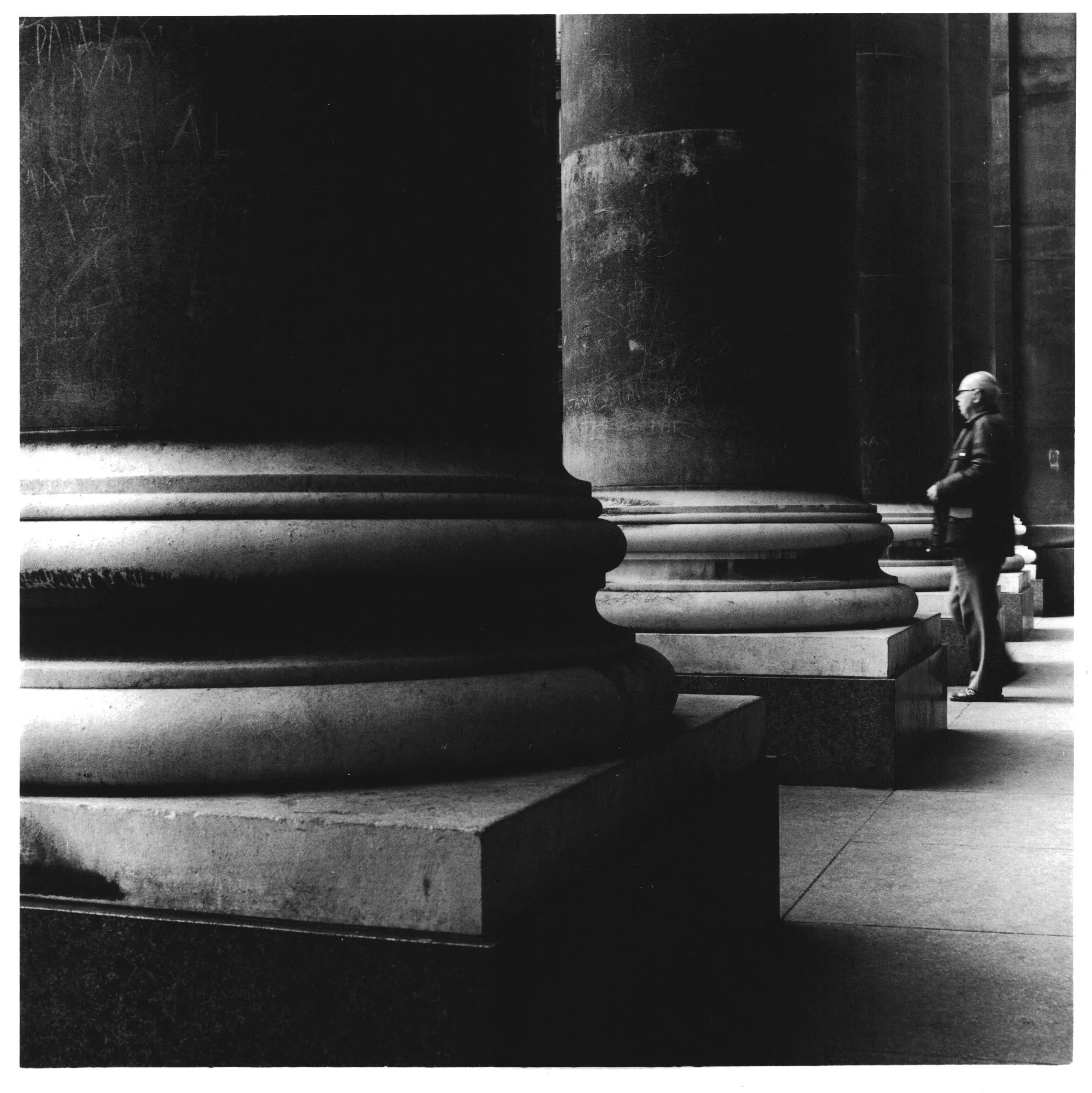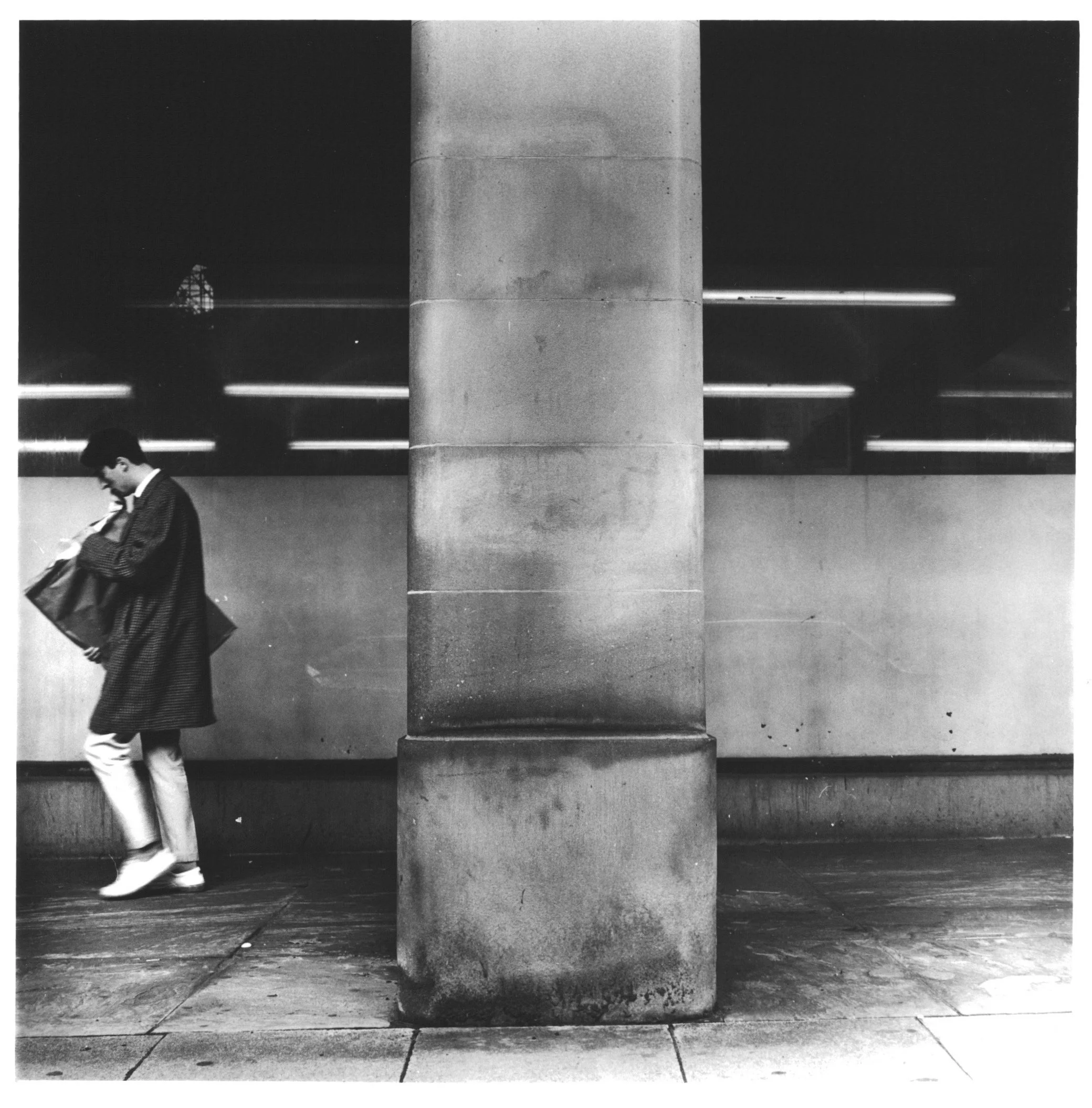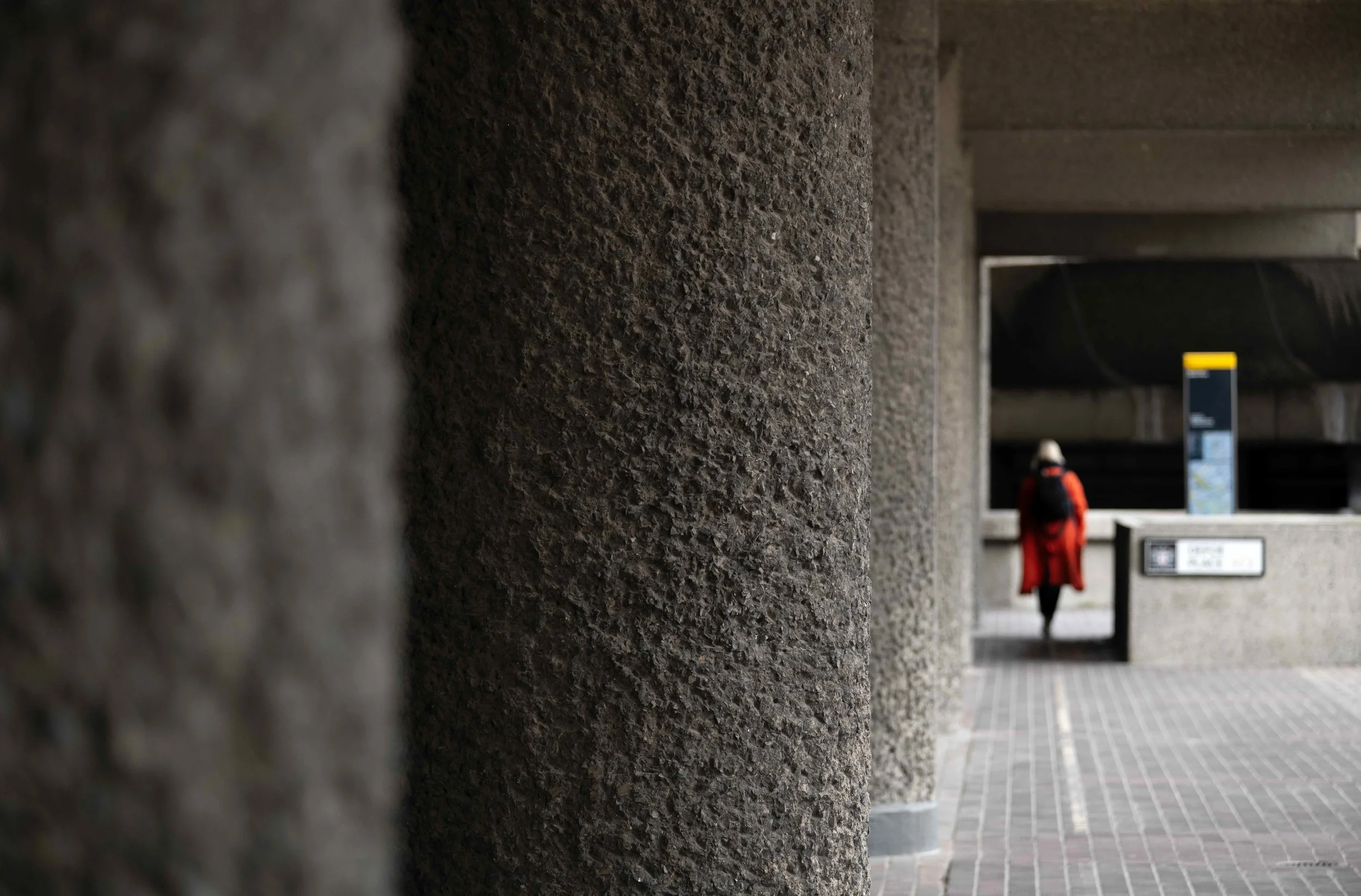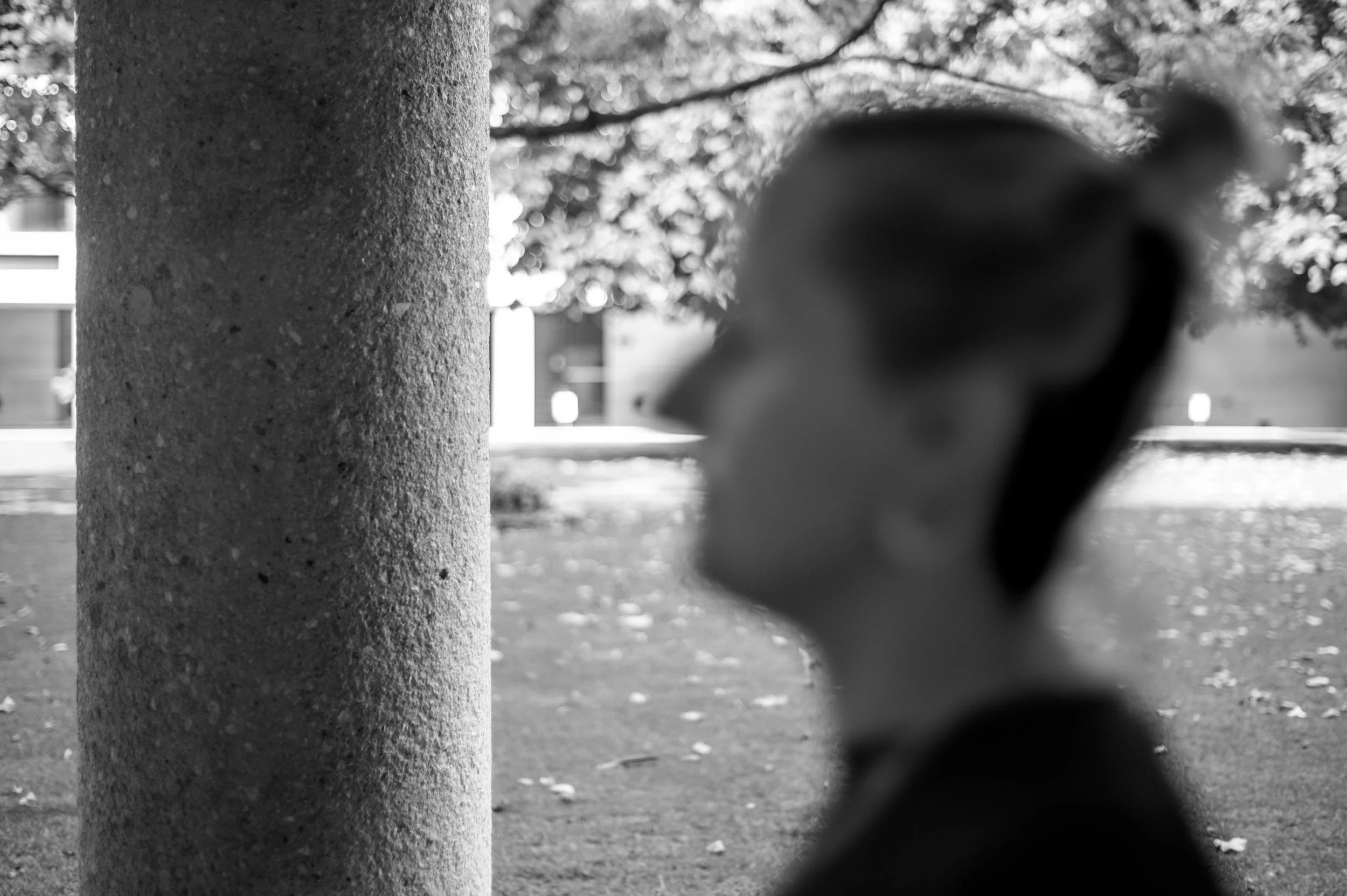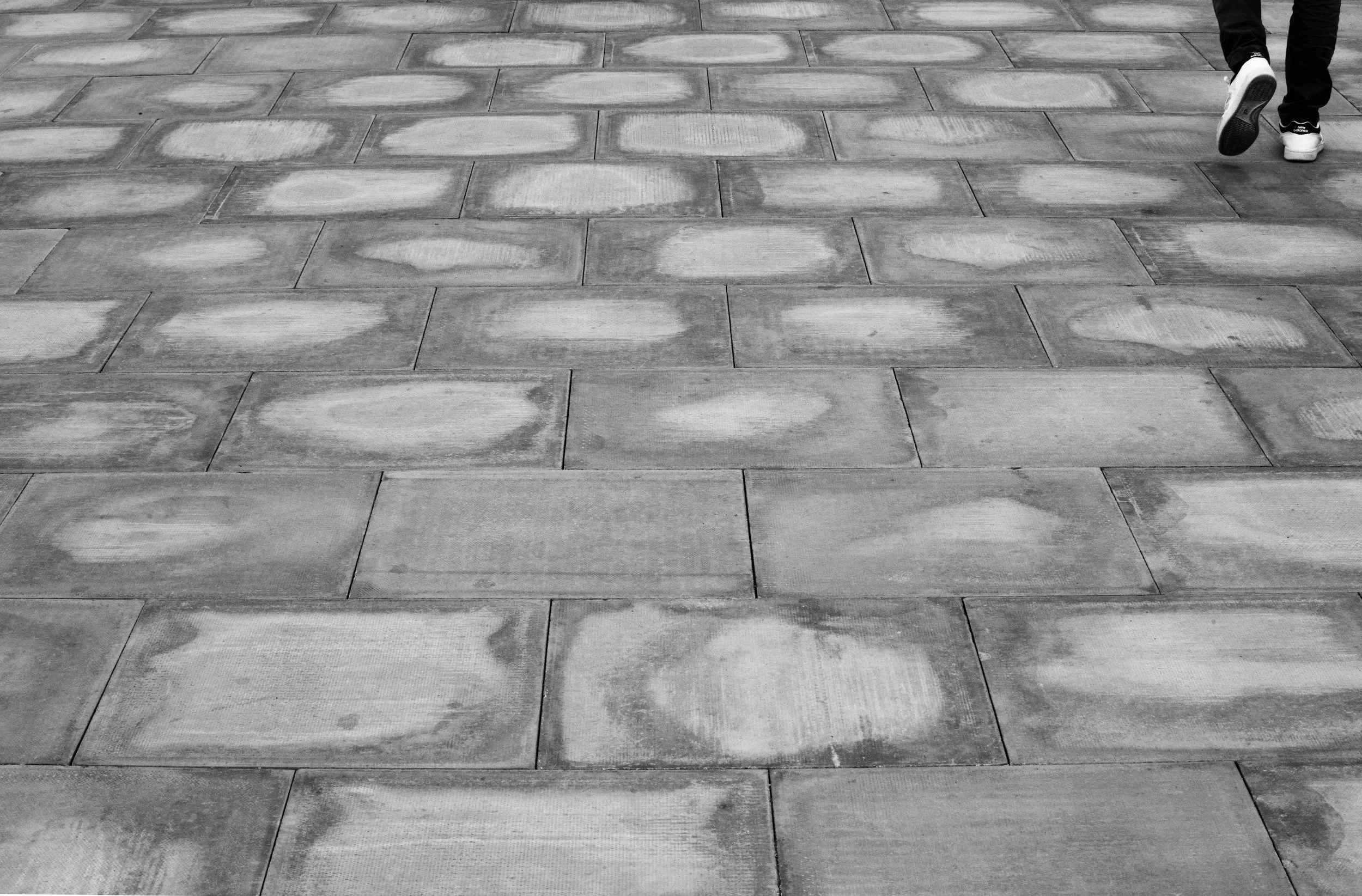The Photography of Justin W Fisher
Diametric 1: Manchester 1982
I seek to narrate a feeling, a sense of being in a built world - geometric forms opposing or complimentary, light defining areas of energy
Diametric 2 - Locked Unlocked: Tate Modern, London 2023
Most of my images are designed to be viewed at scale. I frame space, form and light then wait for the dynamic. The two figures stand in their own vertical spaces moving in opposite directions, creating a parallel and contrast with the twin staircase. I call this abstract realism. The principles of abstract represented in real life
Diametric 3: Manchester 1982
I like the way our constructed world forms a canvas to our lives, constrains and captures light, gives form and order…
Fulcrum 1: Manchester Library, 1983
…as we pass through, often unaware of the drama we help create
Fulcrum 2: Nyon, Switzerland, 1984
Fulcrum 3: London, 2023
Fulcrum 4: London, 2023
Overseer rather than facilitator
Fulcrum 5: Cambridge, 2025
Concrete Jaws: Barbican, London, 2023
The intensity of our lives carries its own energy. Does this transfer to the structures that contain us?
Glance 1: Cambridge 2022
A first glance creates its own energy, in this instance, amplified by the dog’s intense focus on their direction of travel - the dynamic that balances content and composition
Glance 2: Nyon, Switzerland 1985
Again, the moment of cognition amplifies the aesthetic
Triptych - three figures: Montreux, Switzerland 1985
Interplay: Birmingham 1985
Wall 1: London 2023
The white wall is centred in the frame - the thousands of marks and indentations slowly coming to the surface to create their own presence, immoveable when set against a figure absorbed in their own story. My inspiration for this stems from artists such as Rothko and Malevich and the contemplative nature of their work
Wall 2: London, 2023
Wall 3: London, 2023
Column 1: Manchester, 1983
In my column series I am drawn to their impassive nature, their representation of power and strength - the way the built world contrasts with our transient lives. Their impassiveness helps create a sense of our passing through, by comparison, a fragile state
Column 2: Manchester, 1983
Column 3: Manchester, 1983
Does the energy rest with the figure’s haste or with the column’s steadfastness?
Column 4: London, 2023
Column 5: London, 2024
I use colour sparingly. I like the way black & white simplifies an image, allows shapes and space more clarity, but sometimes colour adds something. The muted colour palette of the wall, column and pavement are replicated, unknowingly, by the figure. A kind of abstract realism that gives to the column a sense of being
Column 6: London, 2024
The figure’s vivid coat is always going to stand out but keeping just one column in focus creates an intimacy that balances with the poise and position of the person
Column 7: Cambridge, 2025
Column 8 - Large Figure With Small Boy: London, 2025
The interlocking perpendicular structure feels like an abstract figure in the way a sculptor such as Anthony Caro might deconstruct a person. The small boy creates a counterpoint of scale and realism
Human Graffiti: Manchester, 1984
The concentration and direction of travel of the close figures are bluntly at odds with the aesthetic, creating a different rhythm, a kind of human graffiti playing out against the daubed wall. I think of this as brutalist art - a classical composition aggressively challenged visually and emotionally
Time 1: Manchester, 1983
Two worlds and time passing at two speeds
Time 2: Nyon, Switzerland, 1984
A contemplative sense of reaching an end. The windows peeping out of the darkness top right add to the sense of a past, a life lived and reaching its conclusion
Time 3: London, 2023
A lone, diminished figure hidden in the shadows walking out of frame gives a sense of something greater than ourselves
Time 4: Nyon, Switzerland, 1984
Euclidean Clouds: London, 2025
Geometry plays a big part in the way many artists have and continue to represent our world in abstract form and Euclid was considered the father of Geometry. In this image I imagine how Euclid would analyse clouds. The regimented structure creating a framework for their existence while allowing their individual forms to exist within a pre-defined space. The underlying textures with their contra-flows suggest two directions of movement - horizontal and vertical. The feet bring the abstract back to reality - visual gravity to challenge the metaphor
I hope my work leaves you with a sense of something missed - something exciting in the everyday that all too often passes us by - a celebration of the ordinary as something exceptional
